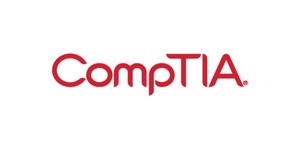White Paper Finds Payroll Tax Reduction and Corporate Tax Reduction Lead Priorities
WASHINGTON, Feb. 7, 2013 /PRNewswire-USNewswire/ -- A new white paper from CompTIA finds support among IT executives for simplifying the tax code, reducing tax burdens on small businesses and creating incentives for growth and innovation.
(Logo: http://photos.prnewswire.com/prnh/20130107/DC38135LOGO)
The white paper, Smart Tax Reforms for the IT Industry, examines the policy priorities of small and medium-sized IT businesses.
The survey found that specific tax code provisions and policies, such as payroll tax and the corporate tax rate, constrain potential growth of small and medium-sized businesses (SMBs), curtailing their ability to invest in their own companies, hire high-skilled employees and serve customers in a globally competitive fashion. Nearly one in three surveyed (32 percent) rated payroll tax filings as costly and complicated for their companies. Six in ten (61 percent) cited reduction in the payroll tax as important, while nearly the same (56 percent) prioritized reduction in the corporate tax rate.
"The IT sector is rightly concerned that outdated and poorly applied tax provisions divert their attention away from running and growing their businesses to meet market demands and compete on a global scale," said Todd Thibodeaux, president and chief executive officer, CompTIA. "Small and medium-sized tech businesses have room to grow if national leaders remove unnecessary tax compliance burdens and preserve tax policies that incentivize investments."
CompTIA lays out four key principles of tax reform:
1. Simplify the Tax Code. The cost of compliance weighs heavily on small and medium-sized IT businesses. One in five (21 percent) indicated that estimated tax filings were second only to payroll tax filings as costly and complicated. Increasing the $1,000 threshold for annual payroll tax returns whereby small employers could file annually as opposed to quarterly would reduce reporting costs and errors.
2. Reduce the Tax Burden on the SMB IT Industry. SMB IT companies cite a reduction in payroll tax costs as a top concern, which if reduced would encourage businesses to hire more workers, which in turn will lead to increased economic growth nationwide. While a reduction in payroll tax leads the list at 61 percent, reduction in corporate tax rate (56 percent) and increasing small business expensing (Section 179) (44 percent) rated close behind.
3. Incentivize Growth and Innovation. Many start-up IT firms are economically unable to make needed investments in equipment, workforce and research without tax reforms that provide incentives for investments, which include deductions that allow companies to focus their efforts on hiring and market demand capitalization. These reforms include: supporting the research and education tax credit, which would allow start-up companies to offset credits against payroll tax liability; bonus depreciation to promote investment and growth; and expanding Section 179 small business expensing to enable small businesses to invest in technologies that improve productivity and quality of goods and services.
4. Protect SMB IT Firms from New Interstate Tax Compliance Burdens. A confusing web of overlapping state taxes will create excessive compliance burdens for small and medium-sized companies. Chief among these are taxes on businesses that do not have a physical presence or workforce within a given state. For any legislation that requires small business to collect sales taxes for foreign state taxing authorities, CompTIA recommends a robust small business exemption.
Tax reform for small businesses will be one of the top legislative priorities when CompTIA members gather for the TechVoice D.C. Fly-In on February 12-14, 2013. The fly-in gives IT business leaders throughout the country an opportunity to meet with congressional representatives in Washington, D.C., to discuss policy priorities. For more information about the 2013 TechVoice D.C. Fly-In, visit www.techvoice.org.
About CompTIA
CompTIA is the voice of the world's information technology (IT) industry. Its members are the companies at the forefront of innovation; and the professionals responsible for maximizing the benefits organizations receive from their investments in technology. CompTIA is dedicated to advancing industry growth through its educational programs, market research, networking events, professional certifications, and public policy advocacy. For more information, visit www.comptia.org, http://www.facebook.com/CompTIA and http://twitter.com/comptia.
SOURCE CompTIA
WANT YOUR COMPANY'S NEWS FEATURED ON PRNEWSWIRE.COM?
Newsrooms &
Influencers
Digital Media
Outlets
Journalists
Opted In






Share this article